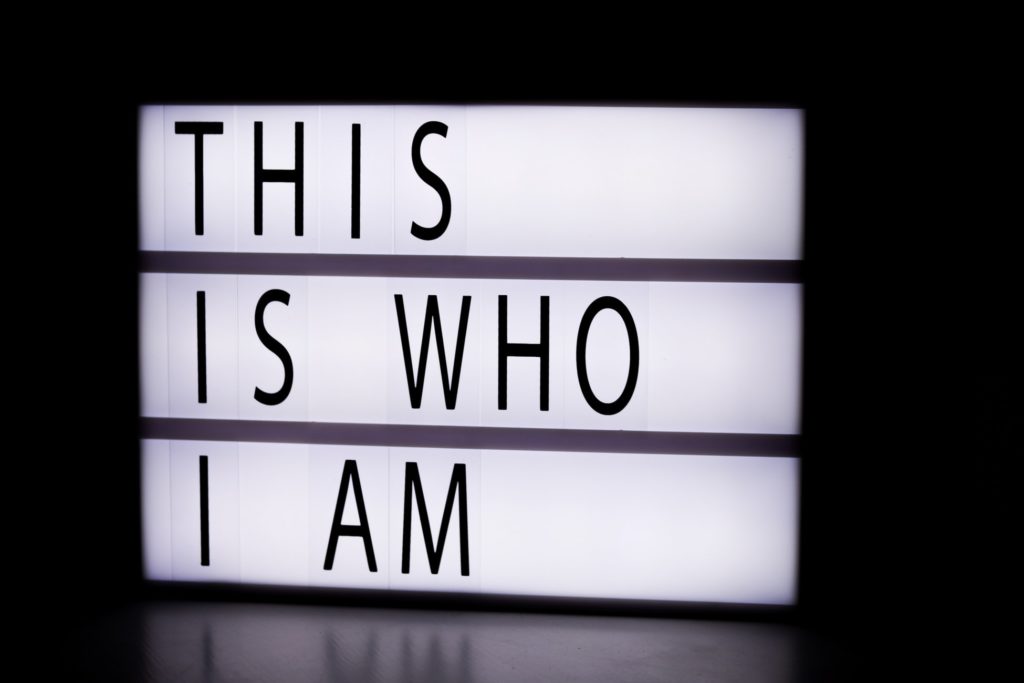Last updated on 2020/11/02
Have you ever heard of someone getting a job simply because they were wearing a tie? Sure – we have all heard stories about those fantastically lucky people that stumble into an amazing job through sheer luck and circumstance. The waiter who manages to say something witty that charms the executive who at the end of the meal not only leaves a substantial tip, but also a job offer on the table. At a management seminar in mid-2015 with other Engineering Directors I heard a secondhand story about oil boom towns in North Dakota that were so hard up for workers that hiring managers would offer jobs on the spot to fast food employees at the drive in window.
These stories must be just that: anecdotes that we tell each other around the coffee maker. Right?
There once was an Engineer who went into a job interview while wearing a tie. As they walked into the room for the interview, the hiring manager looked them over and commented that they liked the tie and that many others who had interviewed for the role couldn’t even be bothered to look nice for the face-to-face conversation. At the end of the interview the Engineer was excited about the opportunity and felt that they were the right person for the job and awaited the response form the hiring manager. The hiring manager stated that they really liked the tie and that was the cherry on top and that they were being offered the job.
You never know what small detail will win you the battle or cause you to be unceremoniously kicked out. I am reminded of one of the great interview scenes in movies. In the movie Boiler Room, Seth Davis (Giovanni Ribisi) shows up at a nondescript office building, eyeing the flashy cars parked outside as he walks in. He is shown into a conference room for a group interview led by senior broker Jim Young (Ben Affleck).
As Jim confidently strides into the room he comments to one of the hopeful interviewees that they are sitting in his chair:
1st interviewee: “S**t, sorry.”
Jim Young: “No, don’t worry about it.”
As the chair is hastily vacated, a second interviewee scornfully calls out to the first: “Dumb ass!“
While the statement is not shouted, it was definitely loud enough for everyone in the room to hear. Jim Young is quick to intervene:
Jim Young: “Get the f**k out of here.”
2nd interviewee: “What?”
Jim Young: “Don’t talk to me, don’t look at me. Just pick your ass up out of that Italian leather chair and get the f**k out of this room right now. Come on, let’s go – out!”
The rest of the potentials watch in astonishment as the individual makes an exit from the room.
Jim Young: “We expect everyone here to treat their co-workers with a certain level of respect. OK, I’m not here to waste your time, and I certainly hope you’re not here to waste mine. So I’ll keep this short. Become an employee of this firm and you will make your first million within three years. I’m going to repeat that. You will make a million dollars within three years of your first day of employment at JT Marland. You think I’m joking?”
A big grin spreads across his face.
Jim Young: “I am not joking.”
A single comment or a simple tie. One of these things landed a job and the other got someone kicked out before the interview even started. In the grand scheme of things for a decision that has the potential to greatly impact the course of someone’s entire life, the incredibly minor perceptions and details that drive these decisions may seem insignificant. We might as well start talking about the effect of the butterfly flapping it’s wings outside the window and the effect that has on the interview process.
However, unlike the movie script group interview, the story about the tie winning an Engineer a job is true. I was that engineer wearing the tie and who got that job. The role that I was offered that day played a huge part in where I am today as it was at that company that I was able to step into the role of an Engineering Manager. Since then, I have led dozens of interviews and been fortunate enough to both hire and work with some amazing and inspiring people.
It is through these experiences that I have been able to craft an interview methodology that works well for identifying the the right type of person in regards to skill set and mentality. There are five primary actions that are good to see in a job interview. These actions and the meaning that is gleaned from them are much better indicators for success in a role than small detail like a tie.

BE AUTHENTIC:
Please tell me a little bit about yourself and your interests
After exchanging pleasantries and completing introductions, this is usually my opening line in an interview. This gets right down to the first things that I want to know. Who are you. A good manager views someone they work with as a person, not a resource or a number. This question is asked because I am genuinely interested in you as a person. What are your likes, what are your dislikes?
If you come work here then you as a person will add value to this team. Please give me a sample of the value you bring. Also you should know that if you are honest and sincere then there really are no wrong answers to this question. It doesn’t matter if you collect stuffed squirrels or volunteer at the homeless shelter. Neither of these things will give you a leg up in this process.
What will be a detriment to you as a viable candidate, is if you are not authentic and attempt to present yourself as something that you are not. Please don’t shoot for an Oscar trying to act as someone that you think is the right person for the role. That will definitely set you back a few steps in this process.

DO YOUR RESEARCH:
What can you tell me about this company and what we do here?
Anyone in the room with me, myself included, knows what we do here. We aren’t looking for you to clarify that for us. When this question is asked we would like to know if you are interested enough in this position to take the time to do some research and learn a little more than what the stock images on the main page of our website can tell you.
Don’t try and over do it here. Attempting to over-do it here is like trying to teach a fish about water. Any good hiring manager knows their own business will see right through you if you try and fudge your way through this question. I have been in plenty of bad interviews where people simply try and regurgitate (badly) the main mission statement for the company as a response to this question. Here are some alternative methods to try instead:
- Don’t Be Afraid To Name Drop – Name dropping in an interview can help show that you did your homework. Don’t do it to suck up – remember that I probably go out to lunch with some of the people whose name you just found on the internet. Stating that you read an article by so-and-so on LinkedIn about a new trend in our market is a great way to show interest
- Try And Find A Recent Press Release – There is nothing better in regards to finding out what we do than in reading the messages that we are celebrating and press releases are a great place to find this information. This gives context about the business and recent products or services and can provide solid topics to talk about in an interview
- Paint a Broad Picture And Ask Them To Fill In The Detail – This is a sneaky little trick that can work wonders if you can pull it off. Some companies just do not have a lot of information available around certain topics. If you really have done your due diligence then how about just asking? “I found that you are making a push into cloud SaaS but can you provide some more details as to how my role would be working with these technologies?“

HAVE A LIST OF QUALITY QUESTIONS TO ASK:
What would you like to ask me about the company or the role?
This is definitely an instance where quality is better than quantity. I don’t worry too much about how many questions you ask, but the quality of each question does carry significance. We aren’t talking about the basic questions either. The basics are the general questions about benefits and salary, PTO and retirement plans. Most of the time the HR people that helped to set up this interview can answer these questions much better than I can anyways.
Instead please ask sincere questions that help both of us get a feel for you as a fit here with us. Sure, this position may be for a database developer, but let’s go deeper and make sure that you aren’t a square SQL Server peg for the round MySQL hole that we have an opening for.
Besides role functions, please ask about our culture and environment. Please feel free to ask about issues and pain points. Often these are the scenarios that really show what it is like to work here. These conversations usually focus on the positives, but what goes up must come down. We will have bad days here too and you should ask what those are like.
Just remember, while these questions give you some answers, the questions you ask tell a story about you. This is a good thing because we only have an hour or two at most to try and speed date our way thorough this single face to face conversation to forge a relationship that could last for many years. No pressure.

SMILE:
This is not a question is asked out loud, but you should know that your body language is being observed throughout this interview and it tells a lot about you
Interviews are stressful enough without added pressure. So please don’t feel like you need to try and hide how you are feeling right now. We want to see the good and the bad about you. We want to see how you react in stressful situations. I have been in an interview with someone so nervous that their hands shook throughout the discussion. They presented well otherwise and even though there was quite a bit of anxiety showing, it did not impact the ability to carry a conversation and perform under that pressure. They ended up getting the job.
The goal with body language and expressions tells a lot about you and your willingness to step up in a role. Sure – once you are hired as a code you may disappear into a dark office for long stretches of time while typing away furiously, but this element of the hiring process requires eye contact and a smile. Don’t forget that.

BE PREPARED TO SELL YOURSELF:
Before we wrap things up, if there was one thing that you wanted to leave us with that shows us that you are the right person for this role, what would it be?
At the end of every interview my closing question is always in regards to a lasting idea. This is the seed that you need to plant that will germinate into a job offer down the road. Please take some time to think through the key impression that you want to make. This is the point that you make that impression. This is your closing argument where you can sway the jury to your point of view.
An elevator pitch is a brief, persuasive speech used to spark interest in an idea or topic. The name comes from the fact that an elevator ride is typically a fairly short affair and one day you might find yourself in an elevator with someone that has the power to turn your ideas into reality. In the 20-30 seconds that you are alone in an elevator do you have the words to spark their interest enough to keep listening to you?
Elevator pitches are not off the cuff statements. They are carefully pared down messages that are practiced over and over for a smooth presentation and a polished finish. Salespeople practice and use these pitches all the time. Now you have the opportunity to sell yourself in your own personal elevator speech. It should resonate with who you are and your goals and ideals. It should show your interest and passion. Please make me walk away feeling like you are the right person to take us to the next level.
That is it! The interview is now over and decisions need to be made. Hopefully the little details fall your way and may the odds be ever in your favor. Thanks for reading!

